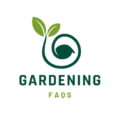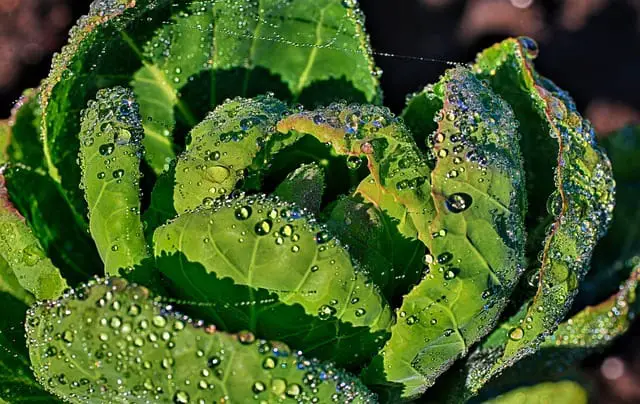Brussels sprouts are a type of cabbage plant that belong to the cabbage family Brassica. The plant is widely grown in many parts of the world for its edible sprouts. Brussels sprouts thrive in full sunlight and are heavy feeders, needing plenty of nutrients from the soil.
Companion planting is a technique of pairing plants that is not only beneficial for aesthetic purposes but also brings about plenty of benefits for the plants themselves. It can enhance the plants’ flavor and help them avoid pests. Companion plants can perform a variety of support tasks in the garden, such as promoting the growth of one crop or enhancing the growth of another crop.
Brussels sprouts can be planted with a wide variety of plants that can serve as excellent companion plants for them. In this list, we go over the top 10 Brussels sprouts companion plants you might not know about.
Read on to find out more about them!
Top 10 Brussels sprouts companion plants
More companion plants for your garden:
1. Celery
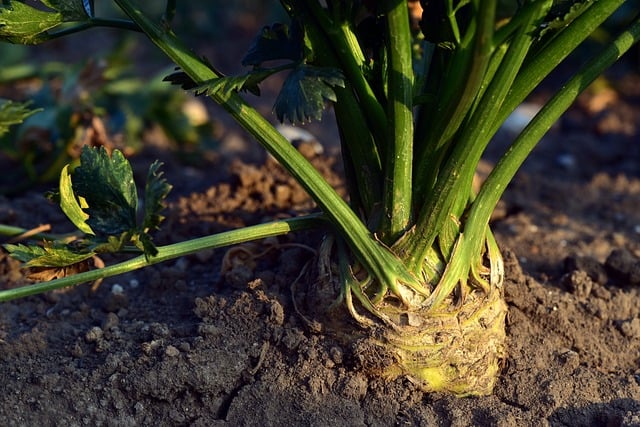
Celery is perhaps one of the best choices when it comes to companion plants for Brussels sprouts. While the plant isn’t easy to grow and is sensitive to extreme temperature conditions, it pairs really well with Brussels sprouts and many people grow it as a challenge.
And of course, celery is also widely used in cooking!
Mature Size: can grow up to a height ranging from 16 to 20 inches
Flowering: it is a perennial plant that typically flowers in the summers
Key Features: its stalk and leaves are used in cooking and the stalk is tall and fibrous and narrows down into leaves
2. Basil
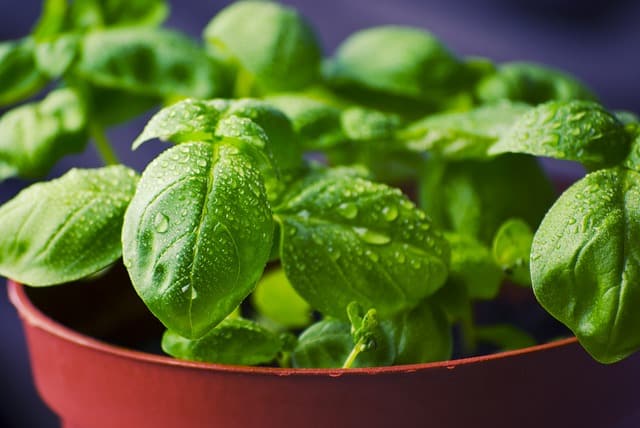
Basil is another excellent choice for planting with Brussels sprouts. This plant grows quite fast and is really easy to grow. It is a fragrant herb that is used in a variety of cuisines all over the world.
So why is basil a good companion plant for Brussels sprouts? Basil is known to repel pests such as thrips. Thrips can wreak havoc on young Brussels sprout leaves.
Mature Size: can grow up to a height ranging between 12 and 24 inches
Flowering: flowers during summer, typically in late summer
Key Features: rounded leaves that curve upwards
3. Beets
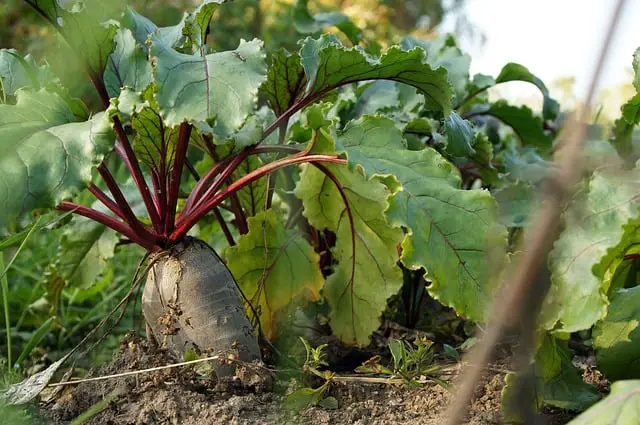
Beet makes an excellent companion plant for Brussels sprouts. Beets are easy to grow and thrive well in the sun, especially during the winter months. They can also survive very low temperatures.
They make great companion plants to Brussels sprouts and are a popular choice for the task.
Mature Size: not very big; reach a height of only 2 to 4 inches
Flowering: typically flower during the colder winter months
Key Features: has a thick taproot, leafy stem, and small flowers
4. Chamomile
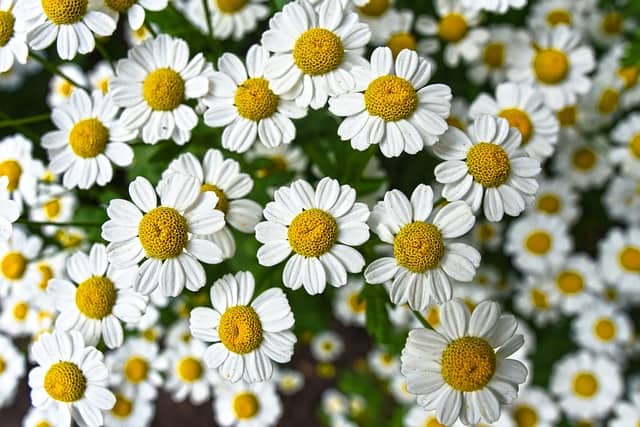
You can never go wrong with planting chamomile next to Brussels sprouts since it serves perfectly well as a companion plant. It is widely known as a flavor-boosting companion plant.
However, care should be taken when dispersing the plant near Brussels sprouts since it can spread rapidly. To maintain a safe distance, plant one chamomile plant for every 130 to 150 feet.
Mature Size: can reach a height ranging from 10 to 24 inches
Flowering: bloom well in direct sunlight during spring and summer
Key Features: have yellow disk-shaped flowers enclosed in flowerheads
5. Dill
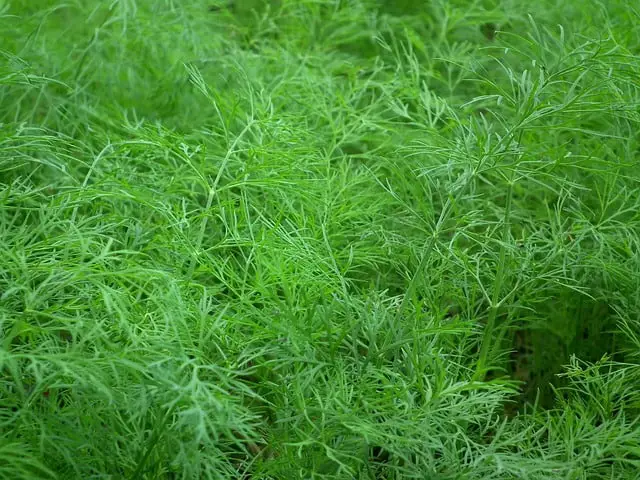
Dill is another plant that serves well as a Brussels sprout companion plant. Dill is quite aromatic and its leaves and stems are used in a variety of cuisines and dishes such as soups, salads, and sauces.
Due to its aromatic properties, dill can attract cabbage worms away from Brussels sprout leaves. These worms can chew and destroy the Brussels sprout leaves, so dill plays an important role in luring them away.
Mature Size: can reach a height of 3 to 4 feet on average
Flowering: flowers from summer to fall
Key Features: an aromatic plant with small stems
6. Garlic
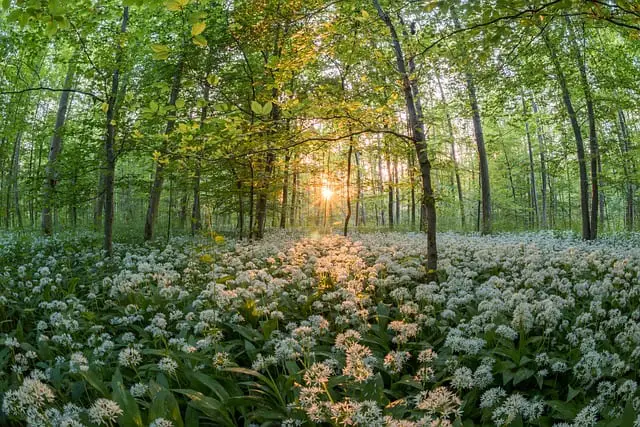
Garlic is another suitable choice for a companion plant for planting near Brussels sprout. It is widely known for its aromatic and distinctive bulbs that are used in cooking all over the world.
Garlic can increase the sweetness of Brussels sprouts. Moreover, it has anti-fungal characteristics that help it repel a variety of insects. This is how it can help insects stay away from Brussels sprouts.
Mature Size: can reach a height of up to 24 inches (2 feet)
Flowering: typically flowers in early or mid-summer, especially in the months of June and July
Key Features: have hard and short stems and long leaves
7. Geraniums
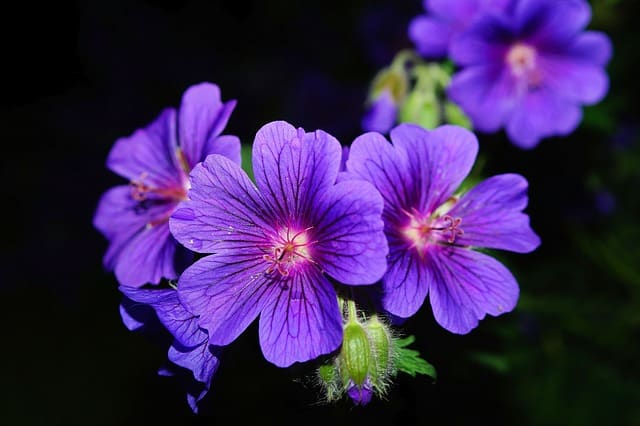
The geranium plant is native to South Africa and produces fragrant, green-colored leaves and pink flowers. It grows and thrives in full sunlight and fertile soil.
Plants like geraniums and nasturtiums have good insect-repelling properties which make them ideal companions for Brussels sprouts.
They can repel insects such as flea beetles and cabbage worms and keep them away from Brussels sprouts. The insect-repellent characteristic is primarily due to the distinct, peppery scent of geraniums.
Mature Size: mature geraniums range in height from 6 to 48 inches
Flowering: typically from early summer to early winter but also in spring sometimes
Key Features: fragrant leaves, pink flowers
8. Rosemary
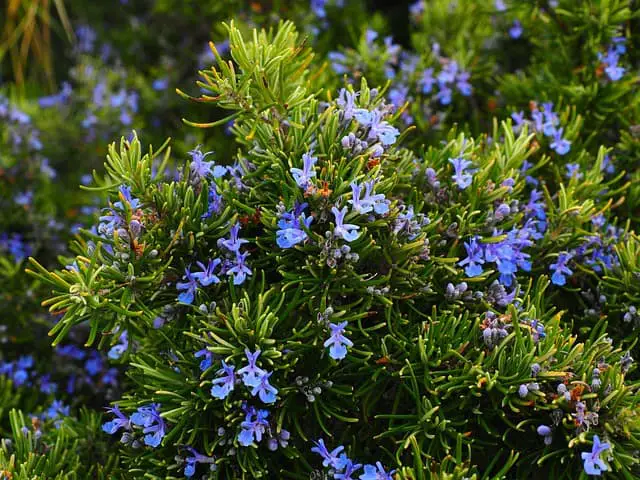
Rosemary is an evergreen plant that can grow up to 6 feet in height. Its distinct, needle-like leaves and small flowers organized in clusters give it a distinct appearance.
Rosemary is known for its excellent pest-repelling properties that help it stay safe from a large variety of insects. Due to this, it is also an excellent Brussels sprout companion plant. It helps the latter avoid insects such as rust flies and moths.
Mature Size: can grow up to become 4 to 6 feet tall
Flowering: flowers in spring as well as early summer
Key Features: green and needle-like leaves and small, clustered flowers
9. Carrots
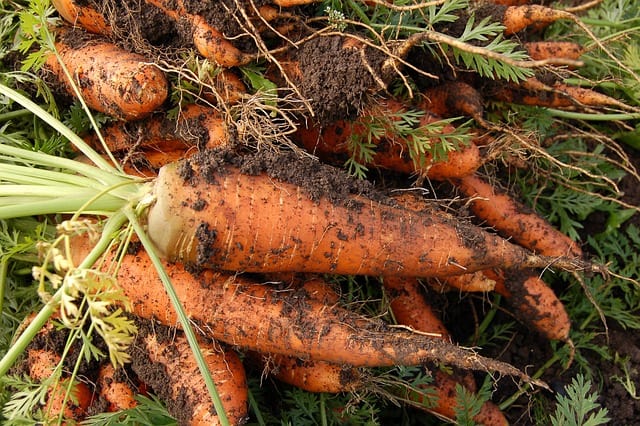
The carrot plant is another great choice for Brussels sprout companion plants. It produces a large, edible taproot, which is typically orange in color. The taproot is used as a common ingredient in cooking all over the world.
So why exactly are carrots good companions for Brussels sprouts, you might ask? The reason for this is simple: carrots can enhance and strengthen the flavor of Brussels sprouts if they’re planted near them.
Mature Size: 1 foot on average
Flowering: grow in two seasons; bloom after winter
Key Features: large, edible taproot
10. Marigold
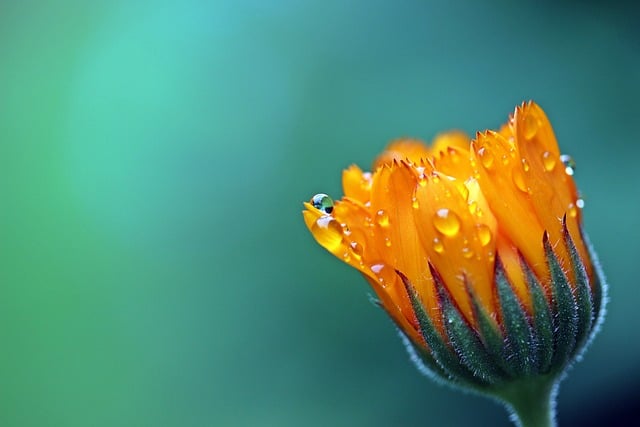
The marigold plant usually flowers from early summer to late fall. It produces distinctive, brightly colored flowers and finely shaped leaves.
Marigold has some insect-repelling properties that help it avoid certain insects and pests. This is why it is a good choice for pairing up with Brussels sprouts since it can help keep pests such as whiteflies away.
Mature Size: can reach a height ranging from 6 to 36 inches
Flowering: blooms from early to mid-summer until late fall or early winter
Key Features: separate or clustered red, orange, or yellow flowers and finely shaped leaves
Bad Brussels Sprouts Companion Plants
Some plants don’t add benefits to your Brussels sprouts and shouldn’t grow with them. Here are a few of these plants:
1. Strawberries
Due to their different soil and water needs, Brussels sprouts and strawberries should not grow together. Brussel sprouts survive in alkaline soil that drains well. On the other hand, strawberries thrive in slightly acidic soil with regular moisture.
Besides, strawberries can take over the space allocated to the Brussels sprouts and also get most of their nutrients. As a result, the sprouts’ chances of survival will be slim.
2. Tomatoes
Both tomatoes and Brussels sprouts use up a lot of nutrients and moisture. Hence, growing both plants in the same place will limit their yield. Moreover, they can both render the soil infertile as a result of constant competition for nutrients.
3. Cabbage
While cabbage has the same water requirements as Brussels sprouts, they’re both prone to the same pests. In a situation where the cabbage suffers a pest infestation, your Brussels sprouts will suffer the same attack.
In addition, the cabbages will be competing with your sprouts for nutrients, water, and space. If you’re planning to grow both plants, leave a lot of space between them.
Final thoughts
This guide gives a good overview of the 10 best companion plants for Brussels sprouts. All of the plants on this list are beneficial to Brussels sprouts in some way or another. Some help them avoid pests whereas others enhance their taste and enable them to extract more nutrients from the soil.
Not only do these companion plants provide benefits to Brussels sprouts, but the pairings look fantastic from an aesthetic perspective.
Frequently Asked Questions
Here, find answers to other related questions you might have about Brussels sprouts companion plants.
What should not be planted with brassicas?
Brassica is a plant that belongs to the cabbage family. There are certain companion plants you can plant alongside brassicas to enhance their flavor and repel pests.
Plants that should not be planted with brassicas include tomatoes, mustards, and peppers. Doing so can attract pests instead of repelling them and cause damage to the brassicas.
Can peppers and Brussels sprouts grow together?
There are certain plants that serve well as companion plants for Brussels sprouts by enhancing their flavor and keeping pests away from them. And then there are some plants that shouldn’t be planted alongside Brussels sprouts.
Peppers belong to the latter. They aren’t good companions for Brussels sprouts and shouldn’t be planted in their vicinity.
Can you plant cucumbers next to Brussels sprouts?
Cucumbers should not be planted next to Brussels sprouts. The reason for this is simple. Both plants are heavy feeders and require plenty of nutrients from the soil. Due to this, both types of plants will compete for nutrients, resulting in stunted growth.
Since planting cucumbers next to Brussels sprouts can actually do more harm than good, it should be avoided.

Hey, I’m Lisa and I’ve been an avid gardener for over 30 years. I love writing, talking and living in the garden! Feel free to connect with me on my socials below
